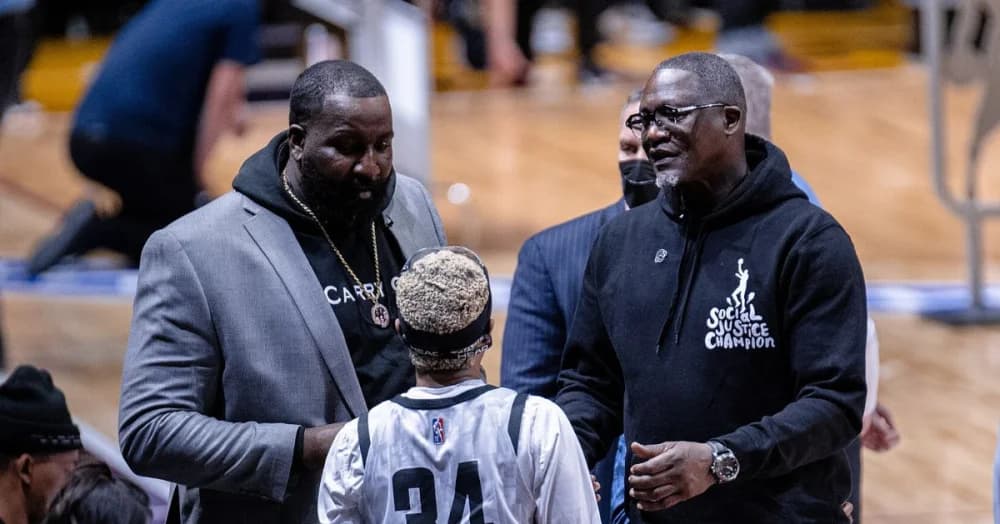Will Kendrick Perkins’ NIL Venture Doom the Future of College Athletes?

In an ambitious move, Kendrick Perkins’ NIL Venture aims to reshape the Name, Image, and Likeness (NIL) market with his latest project, “Nilly.” His mission? To provide young athletes with immediate cash by offering advances in exchange for a percentage of their future NIL earnings. On the surface, it sounds like a golden opportunity for struggling athletes and their families, but not everyone is buying it.
Will Kendrick Perkins’ NIL Venture Doom the Future of College Athletes?
Perkins’ bold move comes with a hefty promise: “I want to reduce financial stress for athletes by providing guaranteed money upfront.” He’s partnered with Wall Street veteran Chris Ricciardi to make this dream a reality, with the duo offering advances ranging from $25,000 to hundreds of thousands of dollars. But here’s the catch—Nilly claims exclusive rights to an athlete’s NIL for up to seven years, pocketing between 10% and 50% of their future earnings.
The burning question remains: Is this a safety net or a financial trap? Perkins believes that this venture helps athletes secure their future without feeling the pressure to sign rushed deals. “There are athletes and families struggling to make ends meet,” he says, defending the venture. But critics are quick to draw comparisons to predatory lending practices, raising eyebrows and sparking fierce debates.
Veteran sports analyst Dan Dakich didn’t mince words. In a fiery YouTube rant, he blasted Perkins, calling him a “big stupid” for trying to exploit young athletes. “This is like a high-interest loan,” Dakich warned, tearing apart Nilly’s business model. “If you’re dumb enough to get into business with Kendrick Perkins, then you deserve what you get.” Harsh words from a man unafraid to speak his mind.
Perkins’ venture isn’t the first to stir the pot. Back in 2018, Major League Baseball player Francisco Mejía signed a similar deal with Big League Advance when facing financial difficulties. He later sued the company, claiming the contract was unfair and took too much of his future earnings. The situation with Mejía should serve as a cautionary tale for any young athlete considering similar deals.
Experts, including law professor Chris Peterson and Scout CEO Michael Haddic Jr., echo Dakich’s concerns, accusing Nilly of “taking advantage of young athletes” who might not fully grasp the long-term implications of these contracts. The lesson here? When the deal seems too good to be true, it usually is.
Perkins is adamant that his goal is to give athletes opportunities he wished he had during his career. Nilly has already signed 20 athletes, both from high school and college, but only time will tell whether this venture will truly empower them—or trap them in a web of financial obligations they didn’t foresee.
NIL deals are a double-edged sword. While they provide immediate financial relief, the long-term consequences can be devastating. Perkins’ Nilly, with its high stakes, serves as a reminder to athletes: always look beyond the short-term benefits and understand the price of giving away future earnings. The world of sports is filled with cautionary tales of deals gone wrong, and Nilly might just be the next chapter.





